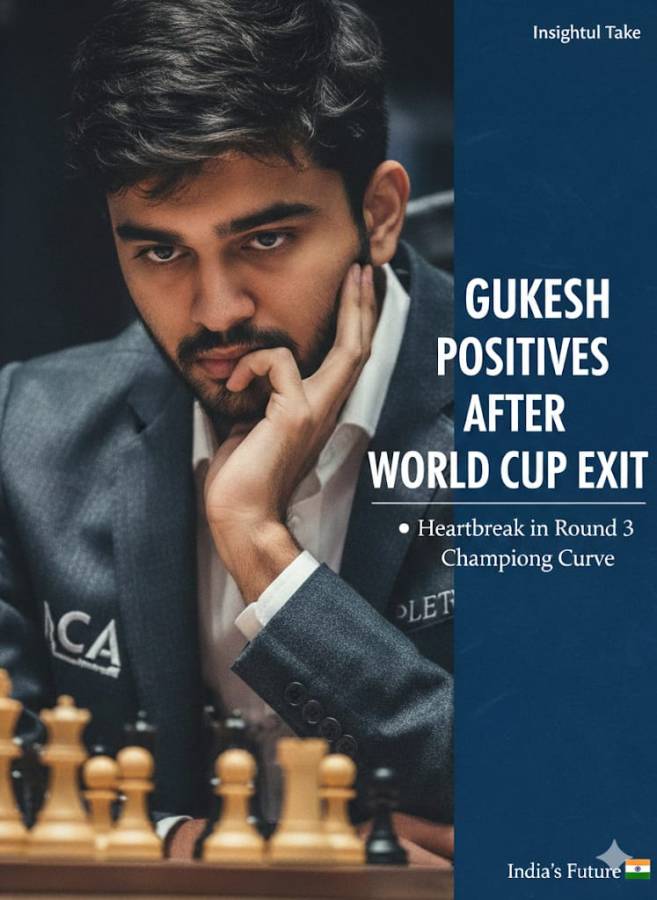
The FIDE Chess World Cup proved to be a challenging experience for reigning World Champion D. Gukesh. The 19-year-old’s campaign ended earlier than expected in the third round, but his calm and thoughtful response to the setback revealed a maturity that bodes well for the future of Indian chess.
Gukesh, who currently holds the World No. 9 ranking, saw his run come to an end against German Grandmaster Frederik Svane. The turning point arrived in the second classical game, where Gukesh had the advantage of playing with the white pieces and his opponent was under heavy time pressure. Despite that, a few missed opportunities in the middle game shifted the balance, resulting in an unexpected defeat.
Yet, what caught the attention of many chess followers was not the loss itself but Gukesh’s composed reaction afterward. Instead of dwelling on disappointment, he chose to treat the setback as a learning opportunity. Speaking after the match, he acknowledged that his recent form had been uneven but said the tournament had provided valuable lessons about competitive focus and mental strength.
“It’s been an interesting experience... It’s a great learning experience,” Gukesh said. “The results have not been great this year. But recently, I’ve started to pick up form.”
This attitude reflects the mindset that defines true champions. The World Cup’s knockout format is one of the toughest in chess, leaving no room for hesitation or minor inaccuracies. A single lapse in calculation or time management can end even a strong player’s campaign. For Gukesh, this early exit could serve as a timely reminder of how precision and patience determine success in such demanding competitions.
Despite his personal disappointment, Gukesh’s exit did not slow down India’s overall progress in the tournament. The country’s top grandmasters continued to make their presence felt, ensuring that India remained one of the strongest contingents in the event.
World No. 7 R Praggnanandhaa led the charge into the fourth round with his consistent and composed play. Arjun Erigaisi, currently India’s sixth-ranked player, advanced confidently with solid performances. The experienced Pentala Harikrishna relied on his years of international exposure to defeat Belgium’s Daniel Dardha in the first classical game, securing qualification with a draw in the next. Meanwhile, Vidit Gujrathi and Karthik Venkataraman pushed their opponents into tiebreaks, displaying grit and determination.
Gukesh’s approach offers a valuable lesson for his peers. His ability to treat setbacks as steps toward progress reflects a maturity that strengthens the foundation of India’s emerging chess culture. With at least four Indian grandmasters moving into the Round of 32, the country’s presence in the later stages remains strong.
For India, the World Cup is not only about medals but also about building a generation of players who combine skill with perspective. In that sense, Gukesh’s outlook ensures that even in defeat, the future of Indian chess looks bright.





















